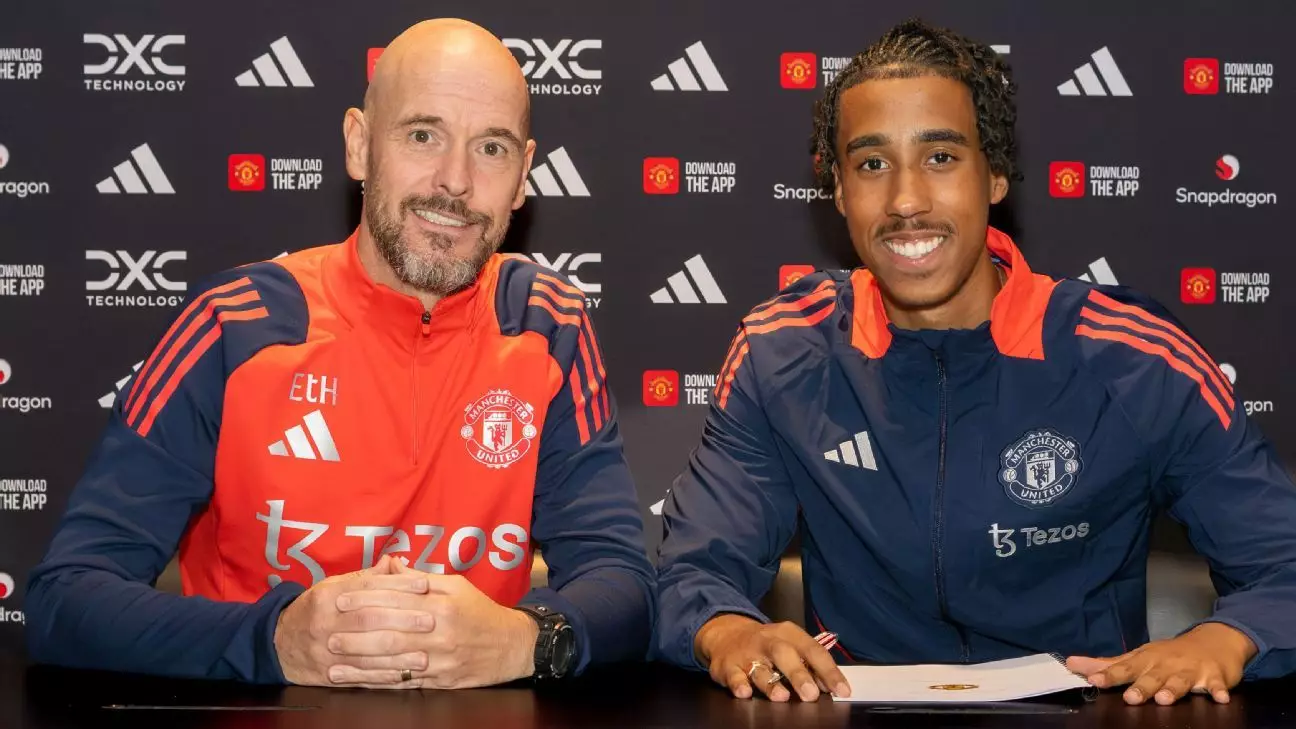Manchester United’s recent £52.1 million signing of 18-year-old defender Leny Yoro marks a significant shift in the club’s recruitment policy under minority owner Sir Jim Ratcliffe. The move signifies a departure from the previous strategy of desperation towards decisiveness in the transfer market.
Change in Recruitment Approach
Unlike previous years, United managed to beat major rivals such as Real Madrid and Paris Saint-Germain to secure the signing of Yoro. This demonstrates a newfound ability to target and acquire top young talent, a key focus of Ratcliffe’s vision for the club. The club’s willingness to negotiate a realistic fee and finalize the deal swiftly highlights a departure from the panic buys that have plagued United in recent transfer windows.
The shift in United’s recruitment strategy can be traced back to an audit conducted by Ratcliffe’s INEOS team after acquiring a minority stake in the club. The audit identified past discrepancies in player recruitment, such as overspending on ageing players and extending contracts unnecessarily. This summer has already seen a departure from this approach, with the club offloading players like Raphaël Varane and Anthony Martial to streamline the squad.
Clear-Out and Restructuring
United’s newfound ruthlessness in the transfer market is evident from their willingness to part ways with underperforming players and those nearing the end of their contracts. The departure of several high-profile names signals a departure from the Glazers’ previous policy of holding onto players for financial reasons rather than sporting ones. The hiring of key personnel like Omar Berrada, Dan Ashworth, and Jason Wilcox further underscores the club’s commitment to a more efficient and effective recruitment process.
Under the new structure, manager Erik ten Hag plays a reduced role in player recruitment decisions, with Ashworth and Wilcox taking on more responsibility. This shift aims to prevent past instances where the club missed out on key targets due to indecision or external factors. By prioritizing players entering the final year of their contracts, United can capitalize on opportunities and secure deals more swiftly.
Overall, Manchester United’s new recruitment policy spearheaded by Sir Jim Ratcliffe represents a significant departure from past practices. The club’s emphasis on targeting top young talent, streamlining the squad, and operating more efficiently bodes well for its future success. While the true impact of these changes remains to be seen on the pitch, the signs are promising for a new era at Old Trafford.

